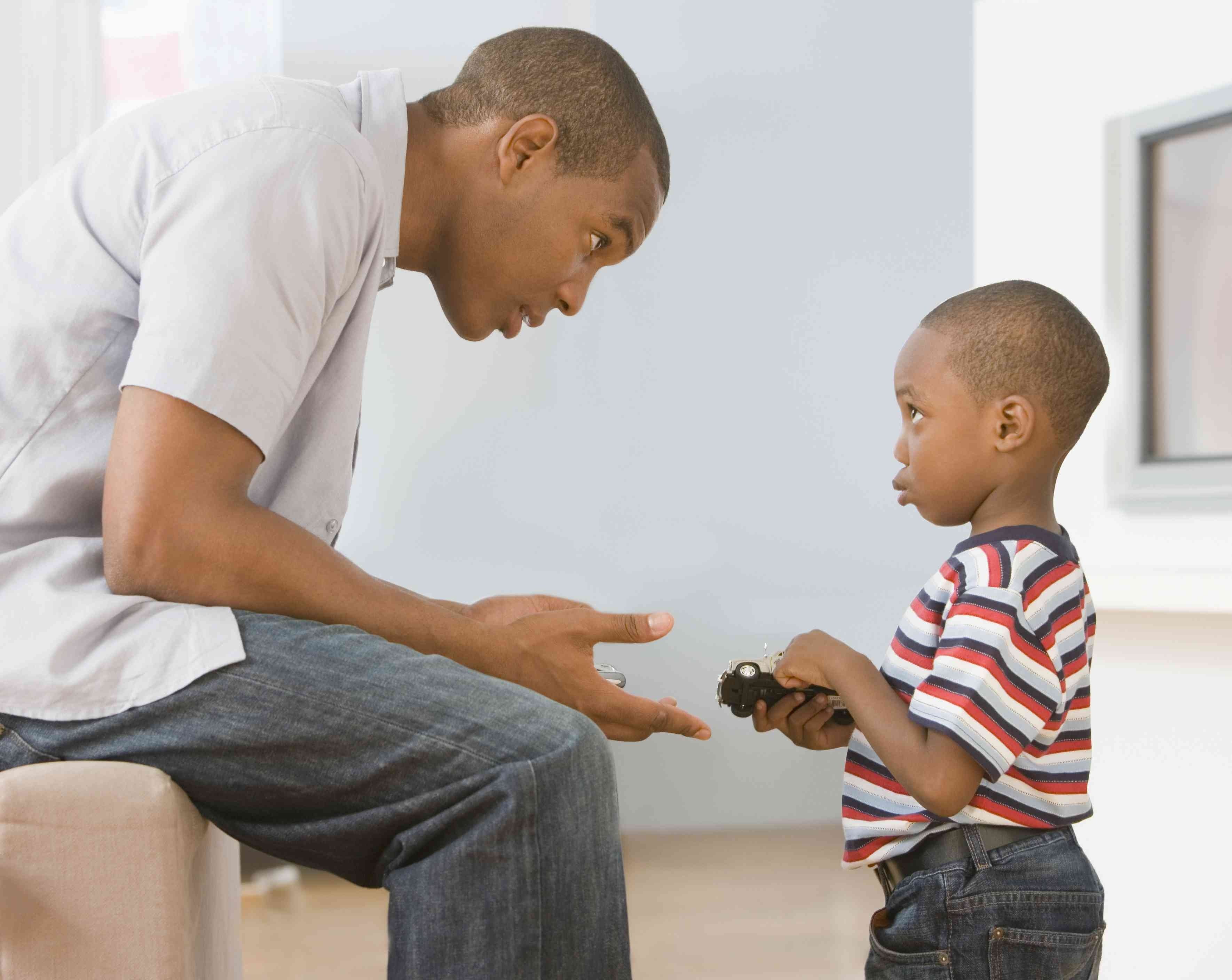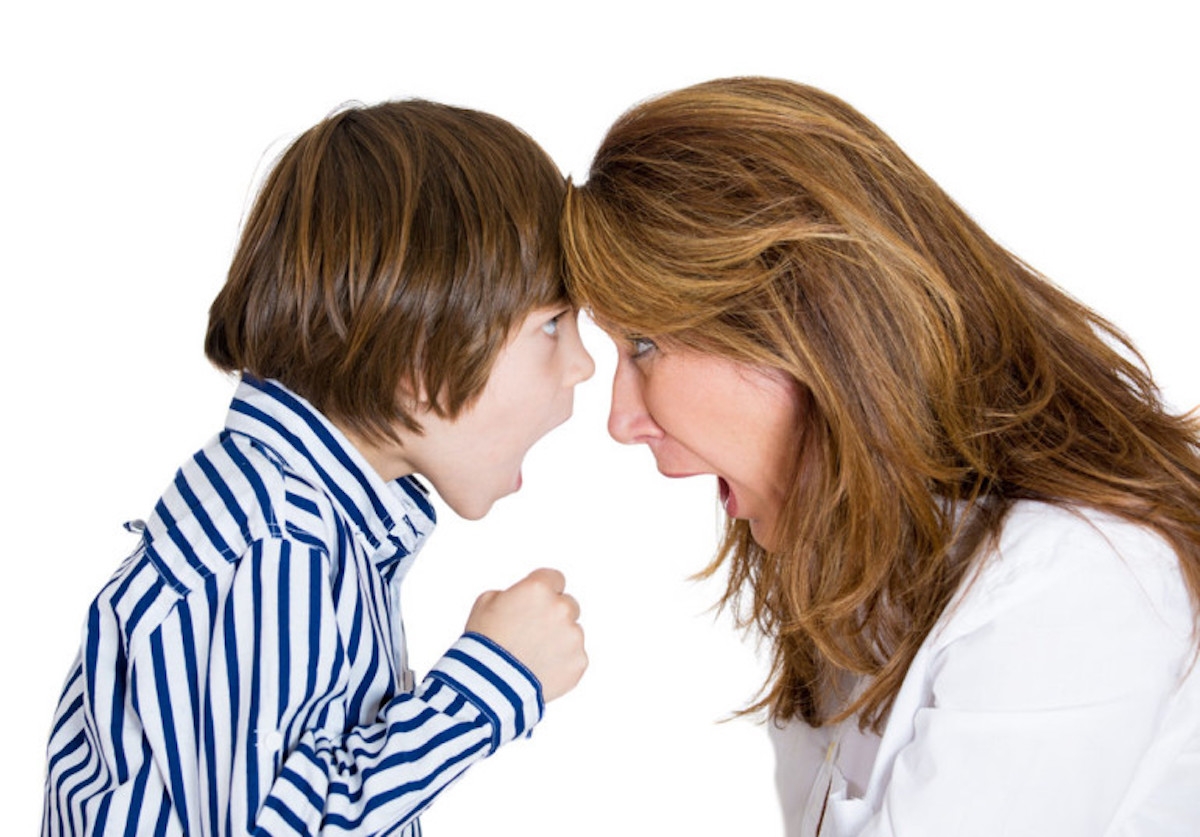How to Deal with Your Angry Child?
Why is your child angry and misbehaving? There are two parts to this question. "Why is your child angry?" and “Why is your child misbehaving?”
The second question is easier to answer. Anger can influence decisions and determine who is responsible for negative events. When a child is angry, they are sure that it is your fault, and this perception makes it difficult for them to show respect. In addition, children's emotional regulation skills are still under development. Therefore, it is very difficult for an angry child to act respectfully, and adults may find dealing with their children's anger confusing, stressful, and tiring.
When we were children, we were taught that anger is bad, and we were often punished or yelled at for expressing anger. We were never taught how to properly handle or express our anger. As a result, we often get angry when we encounter a child’s anger. Moreover, the disrespect children show at such times makes it harder to control our emotions. Now that we know where the disrespect comes from, let’s find out how we can deal with a child’s angry behavior using an approach based on science.
Tips for dealing with an angry and disrespectful child:
1. Don't get angry:
A child's disrespectful behavior may make you angry, and you may feel like punishing them or yelling, "How dare you talk to me like that?" Using a disrespectful response to teach respect rarely works; adults can escalate matters just as disrespectful children can. You must set a good example and show your children how to maintain their composure and respect even in stressful situations.
Moreover, when a child is angry, they are going through many emotions, but if you get angry at the disrespect, you are ignoring your child's feelings while asking them to take care of your feelings. Children who cannot control their anger need our help to do so. Focus instead on their anger rather than yours. Behaving in the best way possible with our children is part of good parenting. Putting our own interests ahead of our children's interests is bad parenting.
If you are unable to keep your cool in difficult situations like this, how can you expect a child with a developing mind and fewer emotional regulation skills to do so? Moreover, emotions are contagious. your anger will feed your child's anger; So, first of all, keep calm. Parents play important roles in teaching their children how to deal with challenges, so take a deep breath if you're having trouble; Stay calm, clear your mind, and focus on helping your child learn how to deal with their anger.
2. Make sure everyone is safe:
In a state of extreme anger, children who are out of control may end up hurting others or themselves. If your child is physically abusing someone, make sure that your child is in a safe area and that others, especially other children, should also be kept at a safe distance. If your child is throwing things or hitting others, you will need to control them physically for their own safety as well as the safety of others.

Simply give them a big hug and say, "I'm sorry, you probably don't want a hug right now, but I need to keep you and others safe and help you calm down. Now let's work on that together. Take slow, deep breaths."
3. Don't punish your child:
The child is taught discipline, and it is not necessary to punish the child to achieve this, nor is it an effective means. It does not teach your child how to control their anger, and it leads to a crack in the relationship between the parent and the child. Punishment can make matters worse, including aggression, mental health issues, impaired cognitive ability, and substance abuse.
Some parents insist that punishment is necessary to teach children the consequences of disrespect. There are many research studies that prove that education is better than punishment when disciplining children. If one of the parents knows this but still insists on using punishment, there may be deeper problems. Are they really punishing them in order to teach them a lesson, or in order to take revenge on the child for making them angry?
4. Acknowledge your child's anger:
Acknowledging your child's anger means recognizing that your child has feelings, even if you don't like them; It is also about letting your child accept their own feelings; Research shows that accepting feelings is a better coping strategy than trying to suppress them. Those who use acceptance as a coping mechanism have a better tolerance for emotional distress. To identify your child's anger, you can simply describe their feelings, such as saying, "You're feeling so angry, and you make it sound like I don't care about your feelings." When confessing, a common mistake is to judge it or try to change it afterwards. For example, you might say, "You're feeling angry, and it's as if I don't care about your feelings, but that's not true because...

The word "but" is bad in this situation. Don't add it. Feelings are neither right nor wrong, and if you try to change them or stand up for yourself, it's still about you, and you do not respect your child's feelings.
Many times, children get angry, not because they don't get what they want but because they don't feel like their voices are being heard. By making it about what you think, you are not really acknowledging their feelings. So just describe how they feel and leave it at that.
5. Ask questions to understand the source of the anger:
Find out the cause of your child's anger issues. Sometimes, it may be something small that doesn't go as planned. Long-term pent-up anger is the result of a strained parent-child relationship. Calmly ask questions to determine the cause, such as saying: Are you angry that you only wanted a snack before dinner because you were hungry, but I wouldn't let you?" or “Are you angry that I always ignore what you need?”
When you ask questions, you are teaching your child to name and describe what they are going through so that they learn how to tell you instead of using bad behavior or making bad comments to get their point across. Children can improve their emotional regulation by learning communication skills, and they will also learn a good way to express their feelings and make others listen to them.
There are other reasons for a child's anger. They may use anger to avoid painful feelings such as feelings of failure, low self-esteem, loneliness, or anxiety. You can only find out by asking. So keep gently investigating why they are so upset.
6. Offer them help:
Help them find a workaround if the anger is caused by not obeying their wishes for something. If your child is angry because they can't have dessert before dinner when they’re hungry, suggest eating the biscuits while they’re waiting, and let them choose as much as possible. Of course, make sure to allow the options your child chooses at the end.
Anger caused by a tense relationship between you and your child may need more work. Offer to talk to them more, learn to listen to their needs instead of dismissing them outright, work on repairing and building a healthy parent-child relationship, and give your child a sense of security by being a responsive parent. Children who feel safe are better at regulating negative emotions and have better outcomes overall.
7. Teach them emotional regulation skills:
Part of the help you can give your child is learning how to regulate their emotions. Feeling angry is painful, but when a person is experiencing strong feelings, getting rid of them is difficult. So teach your child how to cope before they get angry again. Taking slow, deep breaths or counting down is the easiest and most effective way, and talking about how they're feeling rather than exploding is another viable way to deal with their anger.
8. Teach them how to express their objection respectfully:
When everyone has calmed down, you can work on teaching them the right response. Not only can we tell children what behavior we find unacceptable, but we must also teach them the appropriate ways to express their objection. So come up with several methods that they can use next time they encounter such problems, such as saying: “Let me tell you what other children do in this situation..." and then practice that. Saying, "Next time, do it this way, not that way," is not enough; you have to ask them to practice saying it out loud to help them memorize it.
9. Praise them when they do well:
One of the best ways to stimulate respectful behavior and reduce behavioral problems is to praise children when they behave well. Reward positive efforts with positive reinforcement. Positive reinforcement, when done correctly, is a very powerful disciplinary tool that can help stop bad behavior in children.

Be alert, and you will find many opportunities throughout the day to give your child positive attention, so praise them when that happens, such as saying: “Thank you for waiting patiently for dinner, after soccer practice you must be hungry” or “I appreciate that you are so polite when you ask me to make a sandwich” In addition, remind them to use the coping techniques they have learned when you see signs of disrespect or anger.
10. Be patient:
Be patient with your child because controlling one's temper takes time and practice, and good discipline involves using reasoning and creating an environment of calm and respect. Bad discipline uses harsh punishment, ridicule, and verbal abuse of the child.
To raise a decent and conscientious person, they need to not only develop respect for others; they also need to respect themselves. It may take years of practice, but when we genuinely show care, kindness, and respect, they will eventually learn how to treat others right.
In conclusion:
The ability to recognize one's feelings and organize them properly is a learned skill that children are not born with. Having a child who exhibits disrespectful behavior does not automatically mean that you are a bad parent, and having perfect children does not mean that you are a good parent. It means that you are doing your best to help your child grow into a healthy, disciplined, and successful person.